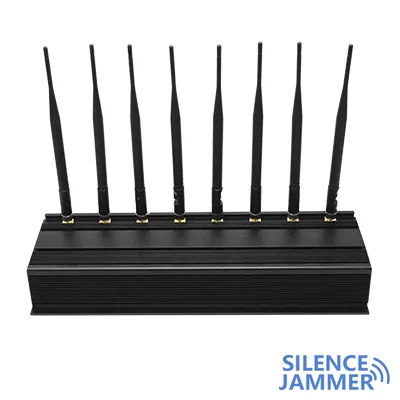With the rapid development of technology, mobile phones play an important role in all aspects of society. However, in the prison environment, the abuse of these technologies has caused serious management challenges. In order to deal with the problem of prisoners' illegal use of mobile phones in prisons, countries have taken technical intervention measures, including installing mobile phone jammers to restrict prisoners' communication with the outside world.

Technical upgrades and countermeasures
In New Delhi, India, the prison management department recently upgraded its cell phone jammer system from the original 3G jammer to 4G. This decision was made to deal with the situation where prisoners used 4G technology for VoIP calls and WiFi connections. According to Sandip Goel, director general of prisons, this upgrade is aimed at strengthening prison security and preventing prisoners from engaging in illegal collusion and criminal activities such as extortion and cyber fraud through mobile phones.
Challenges and countermeasures
Although the use of mobile phone jammers can help control the communication security in prisons, the technical challenges and legal restrictions it brings cannot be ignored. Prison administration departments must ensure that jammers do not interfere with legitimate communication services outside the prison, while protecting prisoners' legitimate human rights and communication rights. This requires precise debugging of technical equipment and effective cooperation of regulatory authorities to balance the relationship between security needs and legal compliance.

Social Impact and Policy Discussion
The use of jammers is not only a technical means, but also an important guarantee for social security and public order. By restricting prisoners' use of mobile phones, prisons can reduce the occurrence of illegal activities and protect the safety of the public and prisons. However, this has also triggered a profound discussion on the balance between surveillance and personal privacy rights. Prison administration departments need to respect prisoners' basic human rights while ensuring security.
Future Outlook and Technological Development
With the continuous advancement of mobile technology, prison management will face more technical challenges and response needs. In the future, with the popularization of 5G technology and the emergence of new communication tools, prison administration departments must constantly update their technical equipment and keep pace with laws and regulations to cope with the increasingly complex prison security environment.
In summary, mobile phone jammers, as a technical means, provide prison management with an effective tool to deal with the problem of prisoners' illegal use of mobile phones. However, its use must also be cautious, balancing security needs with legal and social ethical considerations to achieve dual protection of prison safety and prisoners' basic rights. In future development, technological innovation and policy discussions will continue to promote the modernization and intelligentization of prison management.


